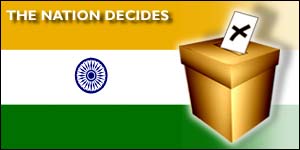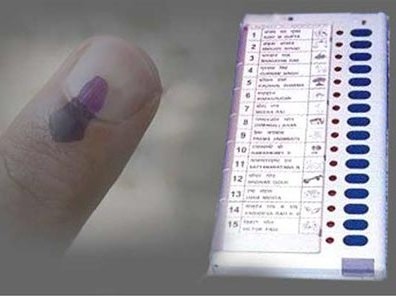The Election Commission of India is constitutionally established as an Indian autonomous federal authority. The main responsibility of the Election Commission of India is the conduction and supervising of all the electoral processes, maintaining the principles and rules ensuring free and fair election polling. The Chief Election Commissioner who heads the Election Commission of India is appointed by the President of India.
To read more about the Election Commission, click here

Election Commission of India and the Types of Elections –
After the introduction of the concept of decentralization of power, there are three layers of the government working on a certain day, that is, the Central Government, the State Government and the Local Self Government.
The three layers of government are elected through three different types of elections, but there are othertypes of elections such as the election of President, the election of members of the Rajya Sabha, etc.
1. General Elections
These are the important elections that take place once in 5 years to elect members for the Lok Sabha. In General Elections, the candidates are elected for the Lok Sabha and they are called MP’s(Member of Parliament).
To elect the central government, the general elections are held by the Election Commission of India in which people vote to elect their respective MPs, who in turn elect the central government of India. Only the citizens with a voter card are allowed to vote.
To know how to apply for a voter card, click on this link.

The general elections are held every 5 years by the Election Commission of India. At present there are 542 members of the Lok sabha, and there can be a maximum 554 members of the Lok sabha.
2. Rajya Sabha Elections
Rajya Sabha is the lower house and the members are not directly elected by the people of India. There are 238 indirectly elected members, who represent all the 28 states and 2 Union Territories including New Delhi. The seats are allotted in proportion to state / union territory population.
The members are elected by the various state and territorial legislature. Term of office is for six years, with one third of the total members retiring every two years.
Under the article 80 of the Constitution of India, 12 members are nominated by the President of India out of the 250 members of the Rajya Sabha from among persons who have special knowledge or practical experience in fields such as literature, science, art or social service.
3. State Assembly Elections
The State Assembly elections in India are the elections in which the Indian citizens choose members of the Legislative/State Assembly. The elections are held every 5 years by the Election Commission of India and the members of these legislative assemblies in each state are called MLA’s.
People elect MLAs and these elected MLAs elect the state government. Similar to the Lok sabha general elections, the leader of the majority party / alliance takes oath as the Chief Minister of the state.
Total strength of a State assembly depends on the State, mostly based on size and population .The citizens of India directly elect their respective representatives for the Legislative assembly of the state. That means that people residing in that state only are eligible to vote for the Assembly of that state.
Election of the President
The President of India is officially the head of the judiciary, the legislature and the state of the Indian Republic. He is also the commander-in-chief of the Indian Armed Forces.
Any Indian citizen who has attained 35 years of age and is qualified for the Lok Sabha elections is an eligible candidate for the post of President. He should not, however, hold any office of profit or a seat in the parliament or the state assembly.
The President is elected, from a group of nominees, by the elected members of the Parliament of India, that is the Lok Sabha and the Rajya Sabha as well as of the state legislatures, that is the Vidhan Sabhas and the Vidhan Parishads. He serves for a term of five years.
These are the different types of elections in India conducted by the Election Commission of India.
You can visit the website of the Election Commission of India by clicking here.
Comment Policy [Please read this before posting your comments]: Only use your real name. Your words are your own, so be nice and helpful if you can. Please, do not share any personal information in your comments. For further details, please read our Comments Policy available over here.